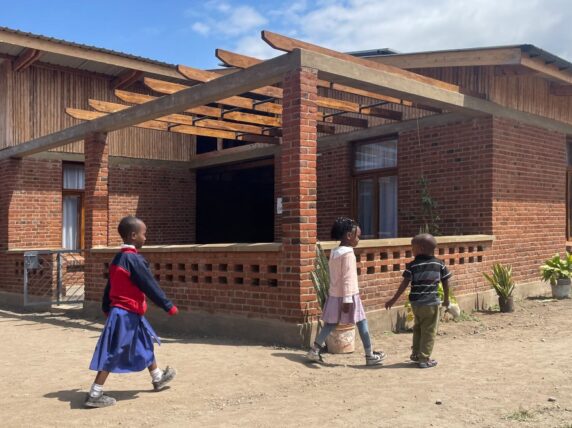How can income generation support locally led development?
This is the second in a series of blogs on transforming business models for locally led development. You can read the first blog here.
Locally led development and a shift in power to local communities is important to Bond, our members and civil society as a whole. So how can income generation support this shift?
As we discussed in our first blog, income generation can be a useful tool. It can support INGOs to not only fund their work but also achieve their objectives. Income generation can be part of an intervention itself, such as an enterprise-led programme with local communities, or it can be a means to financing work, such as by generating income through a café or a shop.
We know that locally led development and a shift in power to local communities is a priority for our sector. So how can income generation support this shift?
We identified three significant ways.
1. Income generation provides unrestricted funds
Having unrestricted funds means an organisation doesn’t have to follow the money. They can choose to spend unrestricted income however they want. This gives organisations the freedom to invest how they want and focus on what is important to them.
Subscribe to our newsletter
Our weekly email newsletter, Network News, is an indispensable weekly digest of the latest updates on funding, jobs, resources, news and learning opportunities in the international development sector.
Get Network NewsOrganisations can also provide unrestricted funding directly to community-based organisations for them to invest as they see fit, including investing in their own financial sustainability.
A good example of this is Traidcraft Exchange, which is using its income to become a participatory grant maker and shift power to communities.
2. Developing trading models or enterprises with communities
INGOs can support communities to develop their own social enterprises or provide microfinance to fund such ventures. Generating income gives a community purchasing power and social capital to build a market for their products. And it can give communities the power to make decisions on what is best for them.
The process of developing an enterprise can also help communities strengthen relationships, develop new skills and build financial sustainability so they don’t have to be reliant on overseas donations or INGOs.
3. Handover mechanisms
INGOs can build a handover mechanism into an income generating project, which can also shift power. For example, if an INGO is facilitating an investment or setting up a business, they can slowly hand their equity share to a local partner or community.
When national and local organisations can generate their own income, they become less reliant on INGOs or funders for funding. A good example of this is when a local community has an asset, such as a building or venue that they can hire out. This generates unrestricted income, which reduces their reliance on external funding.
Challenges and opportunities
So, we know that generating income can contribute to a shift in power, but there are still challenges to overcome. If we think institutional funders are difficult to navigate and report to, investors require even more reassurance, detailed reporting and due diligence. And access to finance is difficult.
If you are not well connected then it’s likely you will struggle to get investors to engage, and this may be particularly difficult for those based in low- and middle-income countries. Generating income requires different skills and mindsets to managing a traditional grant model. These skills can be learned, but this requires investment and understanding organisational costs and pricing, which is difficult for some.
While it is clear there are challenges, there are also opportunities. Organisations need to be specific about what they want to achieve, otherwise they can easily fall into a trap of generating income for generating income’s sake, while ignoring the bigger picture and their purpose.
Generating income is not going to solve the challenges that we face to shift power, but it can contribute to it.
If you want to know more, sign up to the Bond funding working group and impact investing group and start exploring the opportunities.
Category
News & Views



